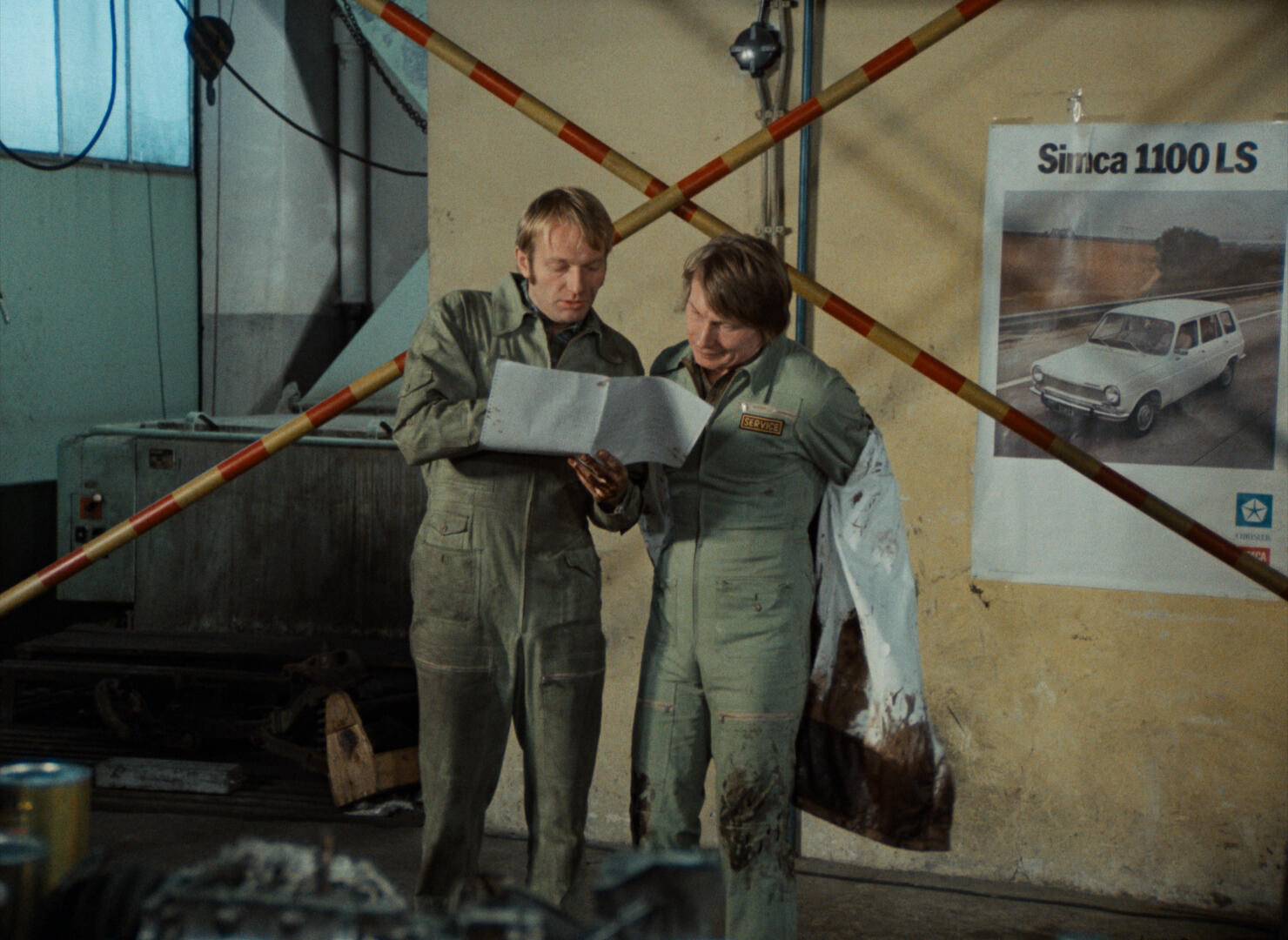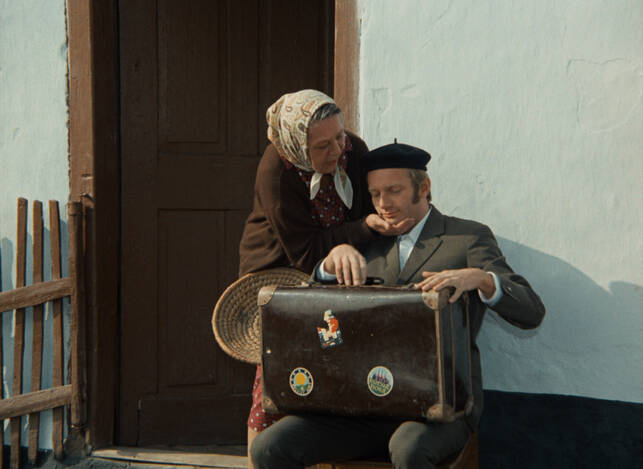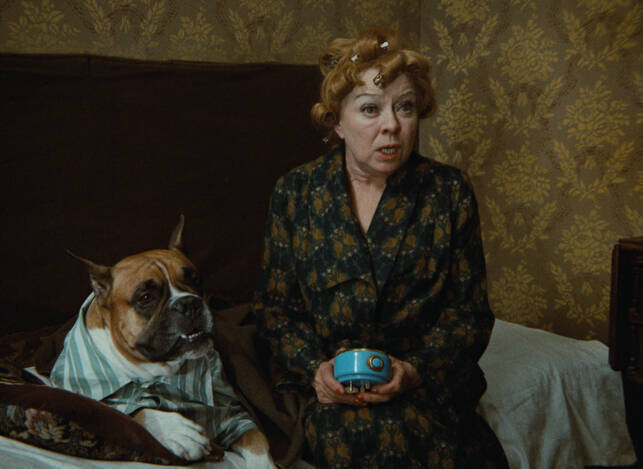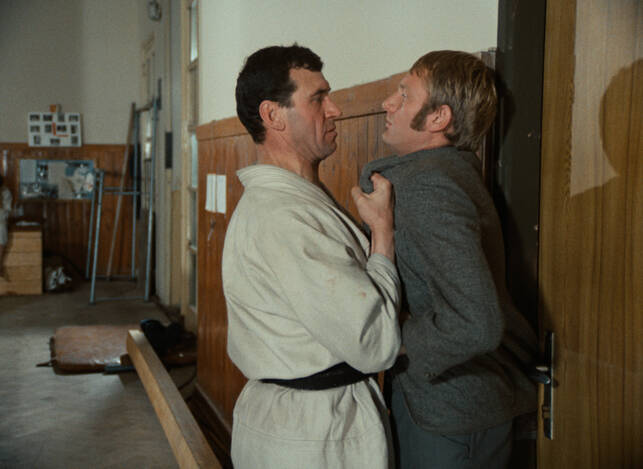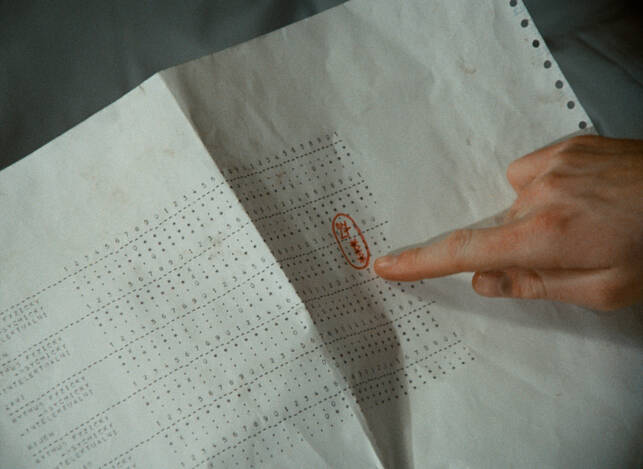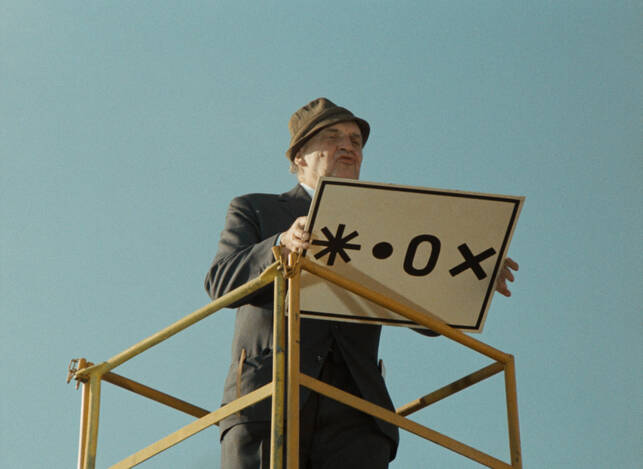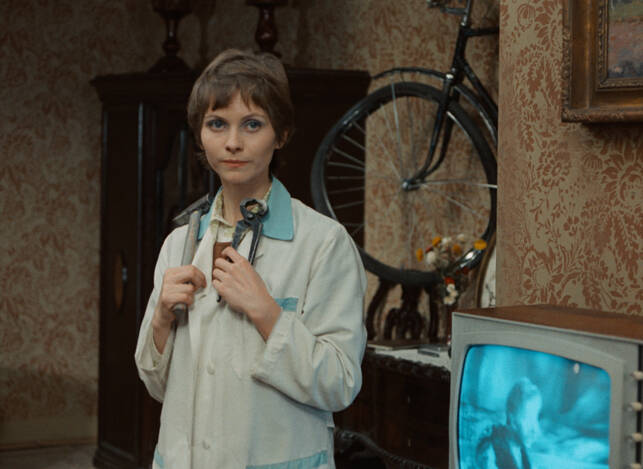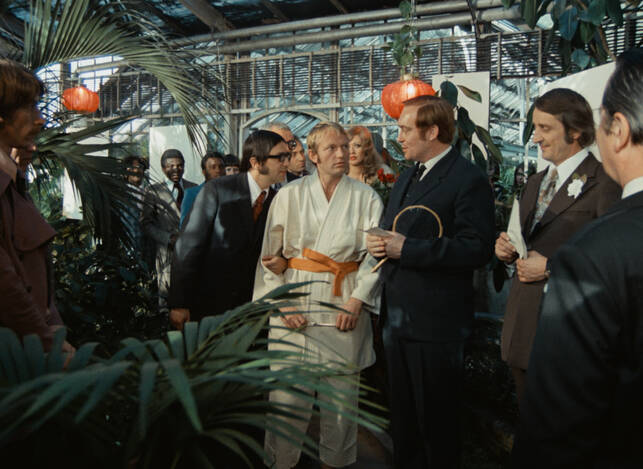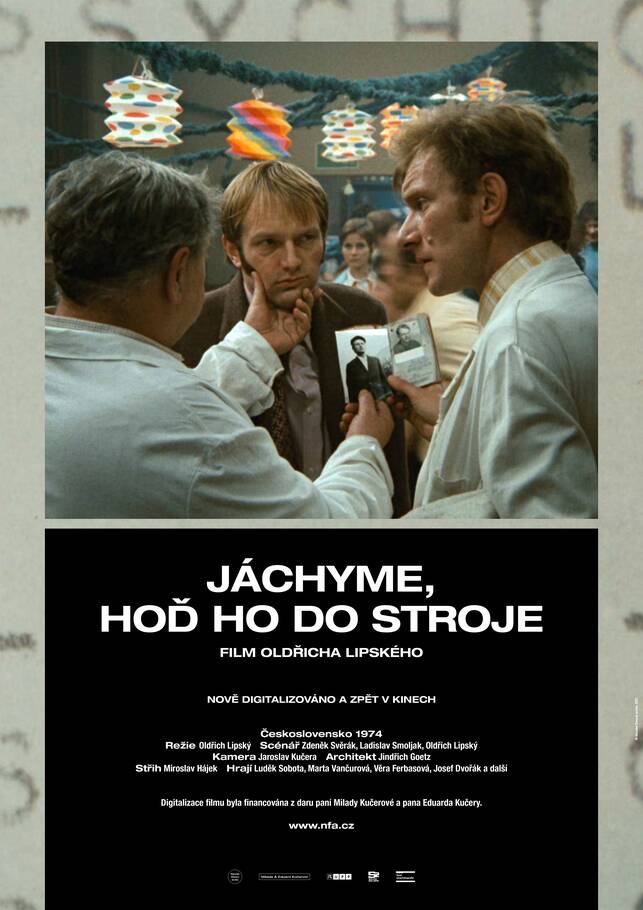Summary
In August 1974 Zdeněk Svěrák and Ladislav Smoljak established themselves as screenwriters with the timeless tragicomedy Jáchyme, hoď ho do stroje! (Joachim, Put Him into the Machine!). They later worked with directory Oldřich Lipský on the student comedy „Marečku, podejte mi pero!“ (“Mareček, Please Pass Me a Pen!”). With the help of the writing duo, from 1976 associated with the Jára Cimrman Theatre, Lipský, then 50, found a way to come to terms creditably with the realities of the normalisation period. The king of Czech cinema parody after the escapist Slaměný klobouk (Straw Hat) (1971), children’s comedy 6 medvědů s Cibulkou (Six Bears and Cibulka) (1972) and agrarian agitprop Tři chlapi na cestách (Three Men Travelling) (1973), he shot his very first distinctively “casual” comedy bereft of fantasy elements. The story of timid young tractor driver František Koudelka, who moves from the country to Prague, revolves around a normalisation-era fad – the “conditiogram”. The makers succeeded in going beyond the standards of the period and created an “existential” comedy about man being the master of his own destiny. The shy, indecisive František organises his life completely on the basis of computer-generated plans specifying “happy” and “crisis” days for all activities. While on bad days the goodhearted naïf becomes a passive victim of his usual ineptness and misfortune, on “good days” he impresses the girl of his dreams, the sales assistant Blanka (Marta Vančurová), triumphs over an arrogant barman and wins a judo bout and motor race. Jam-packed with ideas, the picture is a Czech comedic gem, thanks to numerous charming scenes, enduring dialogue and above all perfect casting. Luděk Sobota, then a 29-year-old theatre actor, particularly stands out in his first sizable film part. The titular computer technician Jáchym is played by Petr Brukner in a cameo that lasts mere seconds.
Read more

